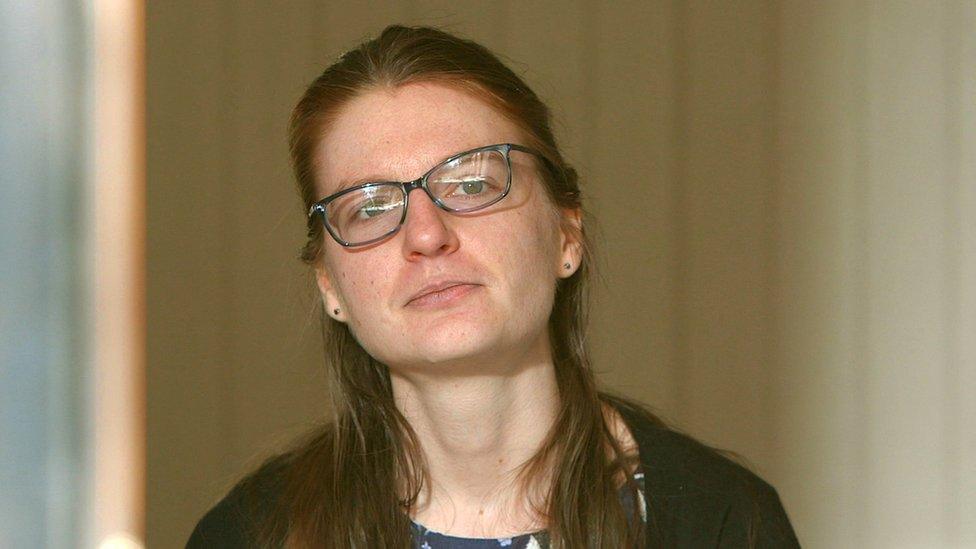Coronavirus: Disabled people 'forgotten' by government strategy
- Published
Coronavirus: The effects on the most vulnerable
Disabled people are "forgotten" by the government's coronavirus strategy, putting "lives at risk", charities say.
A cross-party group of MPs has written to the prime minister calling for a "disability-inclusive" response.
They say isolation, a lack of social care, and legislation that suspends rights to some council services could all "exacerbate" existing inequalities.
The government said it was "committed to supporting disabled people through every stage of this pandemic".
"We recognise that this is a challenging time for disabled people, especially because of the impacts of social distancing and changes to routine," a spokesperson said.
"As we emerge from this unprecedented time we will continue to work with charities and stakeholders so disabled people are at the heart of our recovery."
But Evan Odell, from Disability Rights UK, expressed concern about the government's approach.
"They roll out a strategy - but once it's been announced it seems up to disabled people and their organisations to point out things that won't work for millions of people.
"They've failed to keep disabled people in mind with things like social care, personal protective equipment, sign language interpreters at press conferences and providing information in accessible formats.
"The current approach puts lives at risk and increases the impact of isolation and exclusion from society in a profound way."
Recession fears
A letter signed by 97 MPs and peers - from parties including the Conservatives, Labour, the SNP and the DUP - calls for the government to "re-evaluate its current strategy to ensure social distancing does not lead to exclusion for those with disabilities".
It also asks the government to accelerate efforts to "include people with disabilities in the government's economic recovery plan".
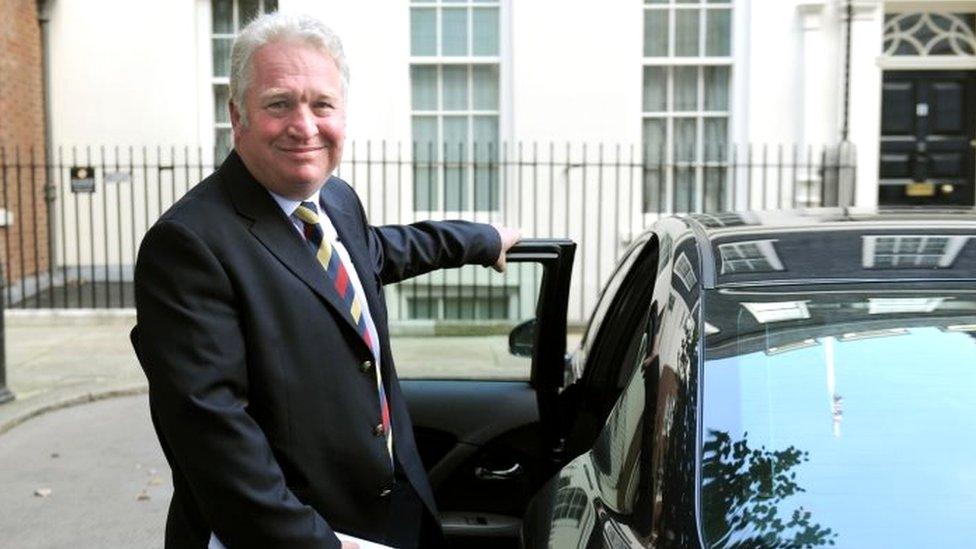
Former disabilities minister Mike Penning was among the signatories
Research from Disability@Work, external predicts disabled people will be hit harder than others by a coronavirus-related economic downturn.
It found that in the last recession disabled people were 16% more likely than others to experience a pay cut or pay freeze and 28% more likely to see restricted access to paid overtime.
Kim Hoque, a professor in human resources at the University of Warwick, said: "The government and employers need to remain mindful that the recession will almost definitely result in disproportionately negative consequences for disabled people unless they put plans into place to ensure this does not happen."
Care plans
The MPs' letter also says healthcare staff who work with people with complex disabilities should be better funded and resourced - including with PPE.
Charity Leonard Cheshire, which runs 120 care homes and supported living facilities across the UK, told the BBC it is spending £400,000 each month on urgent PPE - and expects the figure to rise.
Its director of policy, Gemma Hope, said: "It is essential that the government provides a disability-inclusive COVID-19 response in order to protect the rights of disabled people.
"Without this, disabled people risk being further excluded from society with existing gaps, like access to employment, likely to widen."
In March, emergency legislation passed by Parliament in response to the coronavirus crisis freed councils of many of their duties under the Care Act 2014.
So far eight councils in England have triggered provisions to suspend duties under the Act to manage pressures and staff shortages in the pandemic.
This removes their obligation to assess individuals and their carers' needs, provide detailed care plans, or meet the needs of someone assessed as eligible for support.
Pressure on the social care workforce - already suffering from a significant shortage of workers - has also increased.
'Upside down'
Disabled people's organisations have also warned of the impact of social distancing on the provision of day services, mental health services and the ability of people with social care needs to receive support.
Many vulnerable people have been told to remain at home during the pandemic, and there is concern that loneliness and isolation could have a serious impact on their mental health.
SNP MP Lisa Cameron, chair of the disability all-party parliamentary group, said she had been "been inundated by emails from disabled people across the UK" saying their lives had been "turned upside down" the pandemic.
She added: "The disabled community have overwhelming support of MPs and peers who have signed the letter and we are collectively asking the prime minister to ensure a disability inclusive Covid-19 response".
Lord Sterling, one of the signatories of the letter and founder of the charity Mobility, said they wanted disabled people to be "fully aware that we are concerned about the loneliness and anxiety they may be going through due to COVID-19 - both now and in the future.
"The prime minister is a man of great empathy and I very much look forward to him responding positively to Lisa's letter."
Mike Penning, Conservative MP for Hemel Hempstead, who signed the letter, said: "As a former disabilities minister I hope this sends a message to the government that disabled people need more help than ever at this vital time."
The government said it was continuing to work across departments "to ensure that information and guidance is accessible and disabled people are able to get the support they need".
A spokesperson added: "We are working closely with local authorities and the food industry to maintain access and deliver essential items to those who are most vulnerable, and are clear that where possible urgent and acute care needs should continue to be met."
- Published25 March 2020
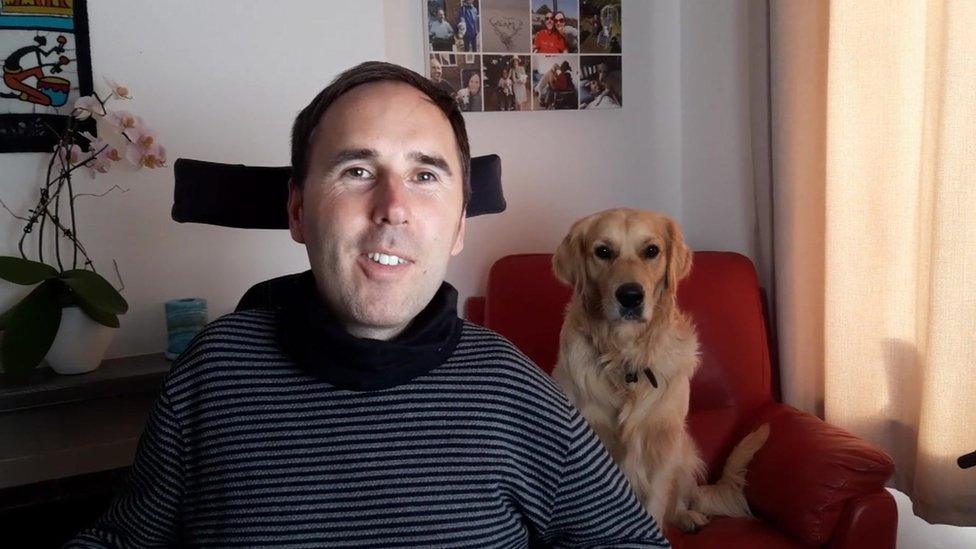
- Published28 April 2020
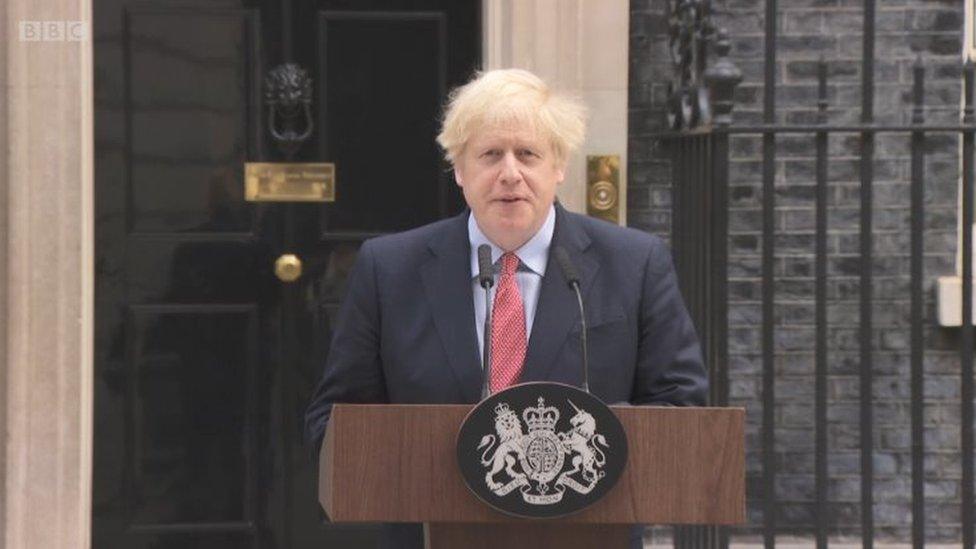
- Published30 April 2020
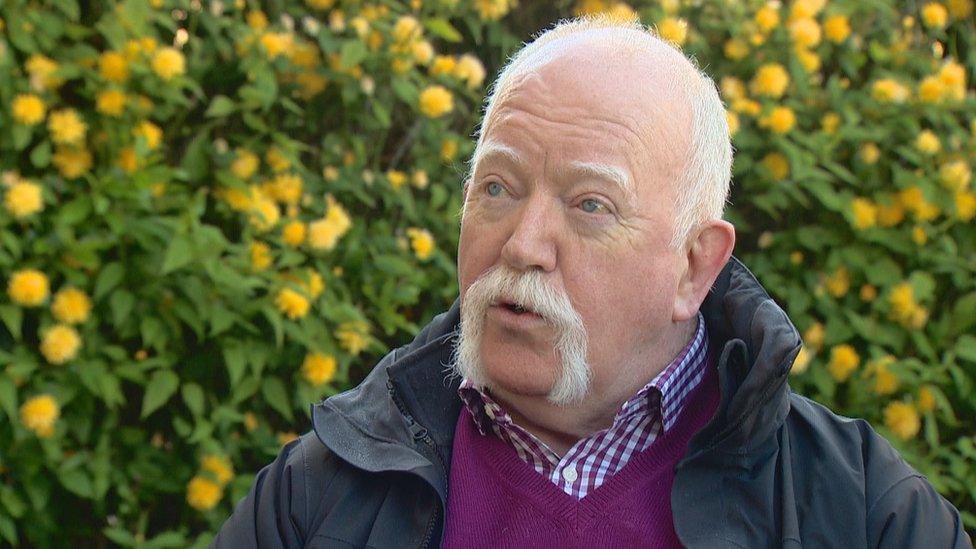
- Published27 April 2020
